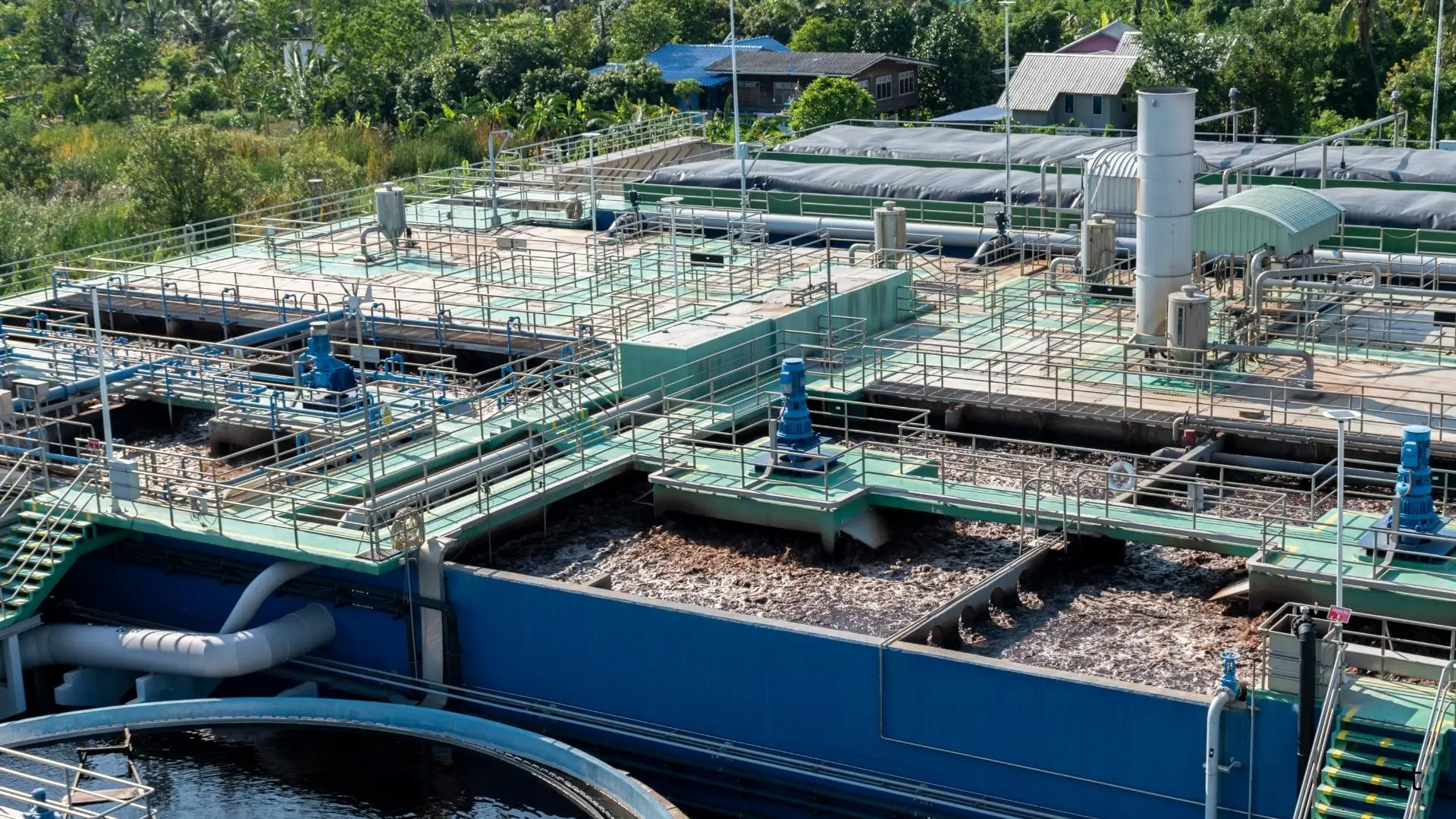Before delving deeper into the concept of Wastewater Treatment Plants (WWTP) and their environmental benefits, here is the definition sourced from the Ministerial Regulation on the Environment. A Wastewater Treatment Plant (WWTP) is an infrastructure designed to manage wastewater through physical, chemical, and/or biological processes, so that it meets the wastewater quality standards. Wastewater quality standards are the limits or concentrations of pollutants and/or the allowable amount of pollutants present in wastewater that is to be disposed of or released into water bodies or the sea from a business or activity. Based on this description, it can be concluded that WWTPs are crucial for environmental quality, which in turn affects public health, especially in Indonesia, a country with a dense population and high industrial activity.
Next, as mentioned in the definition, WWTPs treat wastewater through physical, chemical, and/or biological methods. These three processes have the same goal: to reduce pollutants such as organic materials, harmful chemicals, and microorganisms, and to ensure that the treated wastewater is safe for discharge into water bodies or for reuse, depending on the requirements.
Every industry and building has different needs for wastewater treatment. The WWTP used in households differs from those used in industrial locations. To better understand WWTPs, here are the different types:
- Communal WWTP
As the name suggests, a Communal WWTP is a wastewater treatment plant that is used collectively in a residential area, centrally located. In this system, each household or public facility with its own private sanitation (toilet, bath, and laundry facilities) connects its wastewater discharge to the communal wastewater system. This type of system is commonly used for domestic wastewater treatment in areas where individual wastewater treatment systems are not feasible. Domestic wastewater is the wastewater generated from daily household activities, offices, commercial buildings, and similar facilities.
- Independent WWTP
In contrast to the Communal WWTP, an Independent WWTP is a wastewater treatment plant built individually to meet the needs of wastewater treatment for a specific household, building, or family. Although its scope is narrower than that of the Communal WWTP, this type of treatment is more effective and cost-efficient for handling smaller volumes of wastewater from smaller groups. In the case of an Independent WWTP, the owner must manage the treatment system independently.
- Industrial WWTP
An Industrial WWTP is specifically designed for treating wastewater generated from industrial activities, whether from factories or companies in various sectors. Unlike the Communal and Independent WWTPs, which focus only on domestic wastewater treatment, industrial wastewater has more varied characteristics. This is due to the fact that industrial wastewater can differ significantly depending on the sector. For example, the wastewater from coal processing differs from that of medical liquid waste.
Benefits of WWTPs
- Preventing Water Pollution: Wastewater treated in a WWTP will not pollute rivers, lakes, or the sea. This helps maintain the quality of aquatic ecosystems and the life within them.
- Protecting Biodiversity: A clean ecosystem supports the survival of flora and fauna.
- Reducing Land and Air Pollution: Untreated wastewater can seep into the ground and pollute land, as well as contribute to air pollution.
- Supporting Water Conservation: Treated wastewater can be reused for various purposes, such as irrigation, washing, or light industrial needs.
- Minimizing Environmental Disaster Impact: In situations like floods or wastewater spills, WWTPs help minimize environmental contamination.
- Preventing Ecosystem Damage: Properly treated wastewater helps avoid ecological destruction caused by uncontrolled waste.
Therefore, Wastewater Treatment Plants (WWTPs) are the best solution for providing positive environmental impacts. By managing wastewater properly, public health is protected, and the environment remains sustainable. The implementation of WWTPs is not only a necessity but also an investment for a better future.

